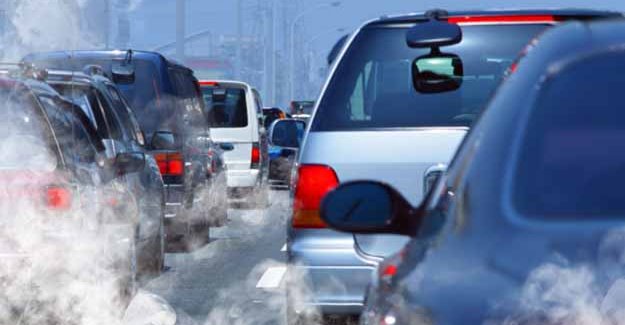Time to scrap dirtiest diesels to improve air quality?
Ministers should consider introducing a new scrappage scheme aimed at taking the oldest and most polluting diesel cars off the road, argues the RAC Foundation.
Over the past two decades consumers have increasingly been buying diesels because of the better fuel consumption they achieve compared to petrol powered cars.
On a like for like basis diesels also emit fewer CO2 emissions.
This shift in buying habits means that of the 28 million cars on the road today, 10 million are diesels. In 1994 there were just 1.6 million diesels.
However diesel cars historically tended to emit significantly more particulate matter (PM) and nitrogen oxide (NOx) than petrol cars both of which are linked to poor air quality and health issues. It is estimated that in the UK poor air quality currently reduces average life expectancy at birth by six months.
Over recent years so-called Euro standards have helped achieve significant reductions in PM emissions from diesels. However these have not been matched by falls in NOx. Only now does the latest set of standards – Euro 6 – offer the prospect of a reduction in this too.
But because cars have an average life span of more than a decade it will take several years for the newer, cleaner, models to work their way through the fleet.
Meanwhile drivers of the oldest vehicles may face increasing restrictions on their use.
A new report for the RAC Foundation by the environmental consultants Ricardo-AEA says there is an argument for discriminating against the highest emitting diesel vehicles in favour of other, less polluting, vehicle technologies. For example this could mean differential pricing in the London Congestion Charging Zone.
Professor Stephen Glaister, director of the RAC Foundation, said:
“Many people believed that by buying diesels they would get better fuel consumption and help fight global warming through low CO2 emissions.
“But such was the focus on the planet that policy makers missed the impact older diesel models in particular have on health in urban areas.
“The car industry has risen to the challenge of cleaning up diesel engines but we still need to deal with the legacy of the dirtiest diesels.
“To hasten the take up of cars with the healthiest credentials ministers should consider another scrappage scheme. If they do not local politicians across the country will increasingly take matters into their own hands and restrict the movement of those vehicles which most compromise our wellbeing.
“You have to ask: if it is important to promote the take up of electric vehicles through the plug-in car grant scheme then shouldn’t government money also be made available to speed up the cleansing of the fleet in air quality terms?”
According to the Ricardo-AEA report, “transport contributes some 30% of total nitrogen oxide (NOx) emissions and 20% of total PM emissions, but these are mostly concentrated on the road network in towns and cities where the majority of air quality limit breaches occur and where the population density is often high.”
The report also notes that EU limits on air quality-related emissions are much less stringent than those used by the World Health Organisation (WHO). Under the tighter WHO guidelines more than nine out of ten (91-96%) of people living in urban areas would be classed as being exposed to excess levels of the smallest type of particulates (PM2.5) which can get deep into the lungs.
ENDS
Contacts:
RAC Foundation:
Philip Gomm – Head of External Communications
[email protected] | 020 7747 3445 | 07711 776448 | 020 7389 0601 (ISDN)
Notes to editors:
The RAC Foundation is a transport policy and research organisation that explores the economic, mobility, safety and environmental issues relating to roads and their users. The Foundation publishes independent and authoritative research with which it promotes informed debate and advocates policy in the interest of the responsible motorist.
The RAC Foundation is a registered charity, number 1002705.
The report is available to download under embargo here:
A previous scrappage scheme ran between May 2009 and March 2010. Under it consumers were offered a £2,000 incentive (with £1,000 coming from the government and £1,000 coming from government) to buy a new car in exchange for scrapping one registered before September 1999. Some 400,000 vehicles were bought under the scheme.
http://www.smmt.co.uk/2010/03/scrappage-scheme-comes-to-an-end/



